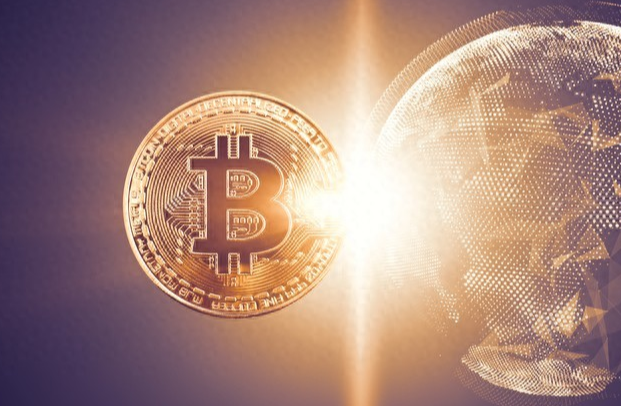Bitcoin as a National Reserve Asset
Advertisements
In recent months, the once-unthinkable has begun to surface as speculation surrounding Bitcoin has ballooned. This virtual currency, heralded by some as a revolutionary financial product, has become a magnet for speculative funds. Plans are afoot, particularly in Texas, to establish a strategic reserve of Bitcoin, potentially integrating it into the U.S. Treasury’s reserve strategy. Such moves could make Bitcoin not just a financial asset, but possibly a tool for the government to manage its debt, allowing it to sidestep traditional avenues like U.S. Treasury bonds.
What makes this development especially intriguing is the method proposed for accumulating Bitcoin. Texas officials have indicated they do not intend to directly purchase cryptocurrencies from the volatile market, instead looking toward tax incentives and donations to build a Bitcoin reserve. This fresh approach has stirred significant interest, leading to Bitcoin's price soaring past $100,000 on the day of the announcement.
The idea of Bitcoin as a reserve currency has ignited passionate debates among U.S. lawmakers, particularly within the Republican ranks. Many legislators are eager to champion Bitcoin, viewing it as a potential rival to traditional fiat currencies. However, opposition remains robust, with concerns that giving Bitcoin legitimized financial status could directly threaten the dominance of the U.S. dollar.
Some conservatives worry that Bitcoin could be the dollar's most significant adversary, arguing that the recognition of Bitcoin as a credible currency could undermine the dollar's stability. Federal Reserve Chairman Jerome Powell himself has defended the dollar, suggesting that Bitcoin's direct competition lies not with cash but rather with gold. Yet, Wall Street bankers, while buzzed by Bitcoin’s speculative allure, remain skeptical and largely dismissive of its actual value, with billionaires like Warren Buffett famously branding it as “worthless electronic trash.”

Amid these contrasting views, some proponents liken Bitcoin to a reservoir, akin to China's booming real estate market. Just as real estate has absorbed the flood of money printed by the Federal Reserve, advocates claim Bitcoin could help stabilize economic growth while reducing inflationary pressures. However, a closer examination suggests these aquatic analogies seem overly optimistic; the essence of Bitcoin has not been proven to create genuine economic value. Instead, its very nature seems detached from the real economy, floating like a castle in the sky, unsupported by tangible assets or cash flow.
Critics argue that the real issues driving inflation in the U.S. stem more from the increased tariffs imposed on Chinese imports than from any surge in cryptocurrency use. As the U.S. navigates the complex waters of its fiscal policy, questions loom large: How will a potential Bitcoin reserve influence international relations, especially with China, which remains the second-largest holder of U.S. debt?
China has historically refrained from endorsing Bitcoin’s legality, leading to worries about how the U.S. government’s embrace of Bitcoin as a reserve currency could affect bilateral relations. If the U.S. opts to utilize Bitcoin for servicing its national debt, how will China react? Drawing on recent trends, China could quicken its pace of divesting from U.S. treasuries, perceiving this potential strategy as a significant risk to the credibility of U.S. fiscal stability.
The response from the media and economic commentators has been swift and pointed. Major news outlets like Bloomberg have issued critiques, warning that any attempts to incorporate Bitcoin into the U.S. strategic reserve might culminate in the “largest cryptocurrency scam in history.” With the U.S. maintaining diverse strategic reserves like oil and gold, Bitcoin stands out due to its lack of practicality for industrial applications or tangible financial utility. This distinguishes it starkly from traditional reserves that directly support economic stability.
The allure of Bitcoin may rest more on speculative potential rather than intrinsic worth, with prices driven by the whims of market speculation rather than by any form of connectivity to the real economy. Such a scenario wherein Bitcoin is officially assimilated into government reserves could be met with significant backlash, particularly given its intangible nature and the risk it poses to taxpayer dollars.
As the U.S. experiences a surge in Bitcoin speculation, with new exchange-traded funds reporting inflows approaching $10 billion within a short time frame, disquiet within opposing factions—such as the Democratic Party—grows. Many fear that endorsing Bitcoin as a national reserve could invite more volatility and instability into an already precarious economic landscape.
Ultimately, the discourse surrounding Bitcoin’s potential transformation into an official reserve currency underscores a broader conversation about the future of money in a digital age. What remains clear is that as long as fundamental economic principles remain at play, and as long as traditional currencies like the Chinese yuan remain tied to tangible manufacturing capabilities and national creditworthiness, Bitcoin’s status as a legitimate alternative currency will likely face ongoing scrutiny. Concerns surrounding material demands and concrete economic practices may temper any rush toward a cryptocurrency-dominated financial future.
Write A Review